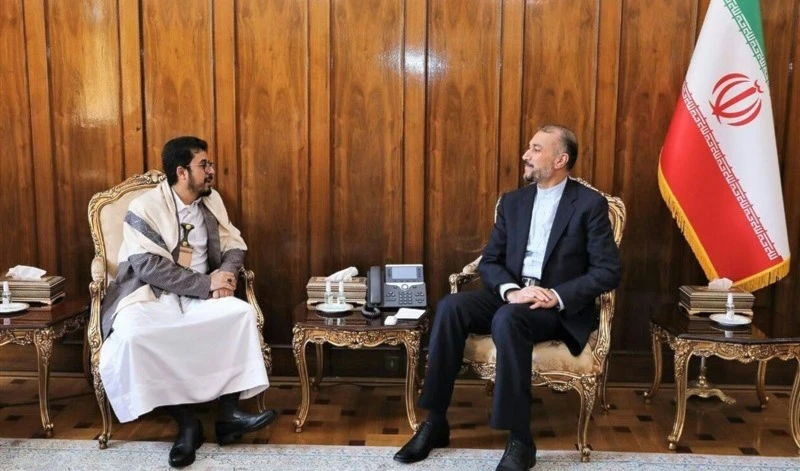Saudi Arabia forced Yemen’s Hadi to resign: WSJ
Abd-Rabbu Mansour Hadi was threatened by Saudi Arabia to relinquish power or his dirt would be exposed, Saudi and Yemeni officials revealed.
-

Saudi Arabia pushed Yemen’s elected President to step aside, officials say.
Saudi and Yemeni officials reported that Saudi Arabia urged Yemeni President Abd-Rabbu Mansour Hadi to resign earlier this month, and Saudi authorities have mostly confined him to his residence in Riyadh and prohibited communications with him in the days since.
On April 7, Hadi handed power to a council of eight representatives of different Yemeni groups, as Saudi Arabia launched a war of aggression on Yemen that has caused a humanitarian crisis.
Read more: Selective humanity; who stood with Yemen?
According to Saudi and Yemeni sources, Crown Prince Mohammed bin Salman (MBS) handed Hadi a written order delegating his powers to the council on the sidelines of negotiations among Yemeni lawmakers in Riyadh that week.
Scandalous allies
Saudi officials, who have backed the Yemeni government, threatened to make public what they said was evidence of Hadi's alleged wrongdoing as they tried to persuade him to relinquish power, according to Saudi and Yemeni sources.
Now, "Hadi is effectively under house arrest at his residence in Riyadh without access to phones," said a Saudi official. According to a second Saudi official, a few Yemeni leaders were allowed to meet him with Saudi officials' prior agreement.
In response to a request for comment, another Saudi source stated that various pro-government Yemeni forces had lost faith in Hadi's capacity to lead "peace talks" and had asked Riyadh to press him to retire. Saudi Arabia did not put any pressure on him, according to the official, and he was not placed under house arrest or prevented from traveling.
Read more: The Saudi crimes in Yemen, sponsored by the West
"Saudi Arabia has not orchestrated the removal of Hadi nor threatened to expose alleged corruption," the Saudi official said. "Its role was limited to conveying the desire of the Yemeni factions who participated together in the Yemeni-Yemeni talks to President Hadi."
Abdullah Al-Alimi, director of the Yemeni president's office and vice president of the new Presidential Leadership Council, denied Hadi was under house arrest but claimed he would need more time to reach him.
The government of Sanaa and the Yemeni Armed Forces rejected the Yemeni government’s new leadership council, saying it had been imposed by a foreign power. They demanded an end to what they believed is Saudi intervention.
Foreign intervention
According to the United Nations, Riyadh's aggression in Yemen has stretched on for years, killing tens of thousands of civilians while costing the kingdom billions of dollars, according to analysts. Saudi Arabia's relations with the United States have been allegedly strained as a result of the conflict, but the US has continued to back the Saudi effort with weapons and information.
According to attendees of the discussions, Hadi's dismissal occurred at the end of a week of talks in Riyadh in which hundreds of Yemeni officials were offered Saudi resident permits and financial incentives to attend.
The talks generated some notable encounters between rival leaders. But discussions were often tense, with participants coming to blows in private sessions and producing little agreement, participants said.
The most interesting part is the revelation that Hadi himself wasn’t included in the discussions.

 3 Min Read
3 Min Read










